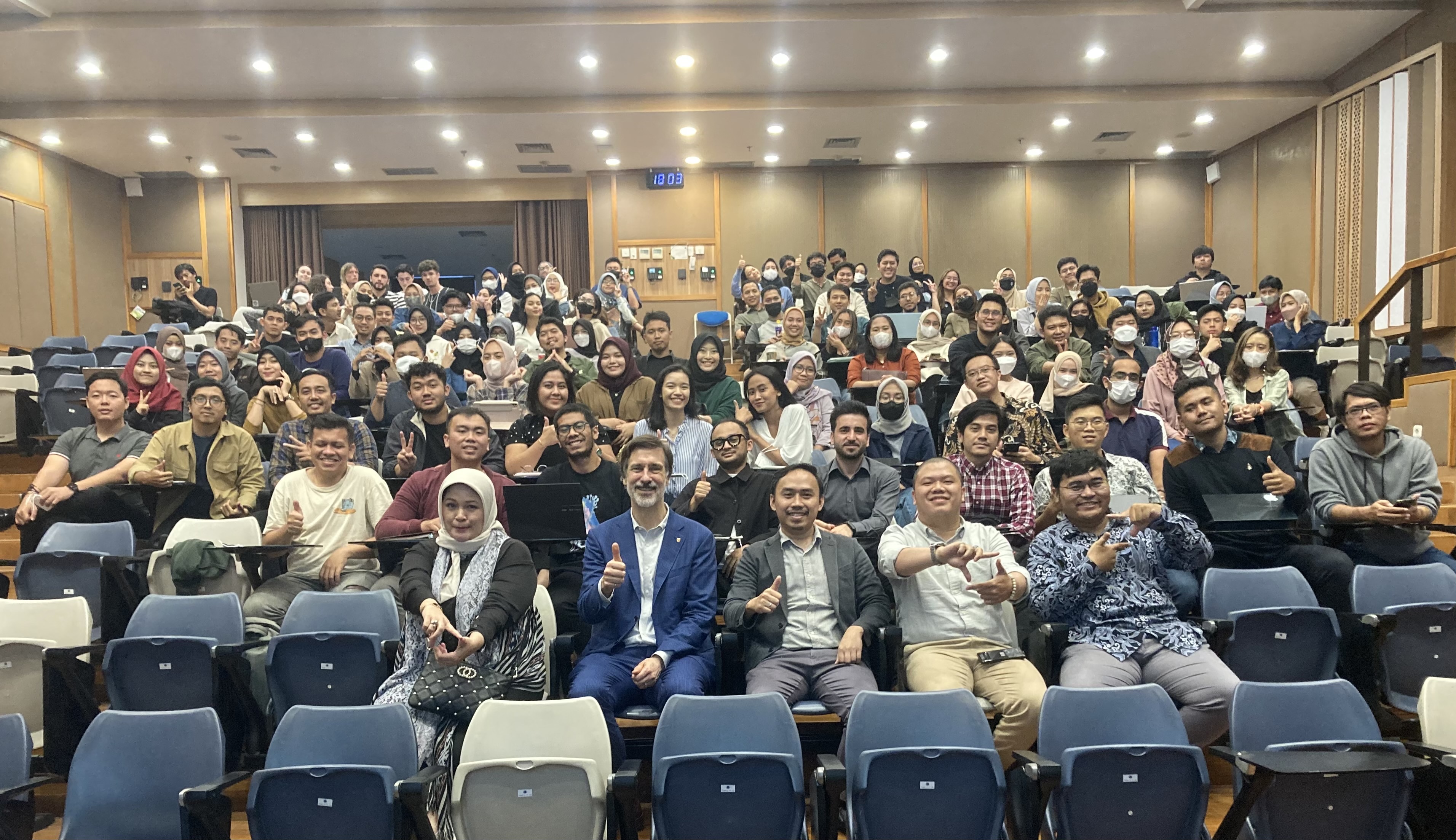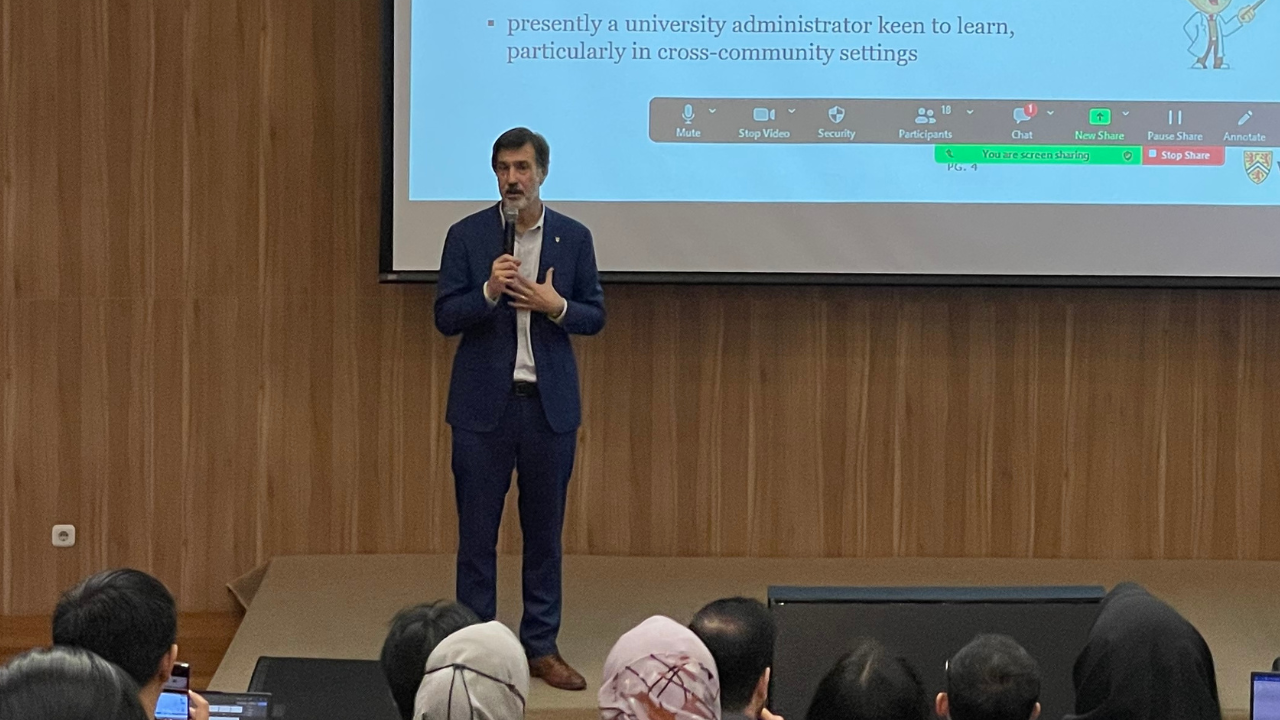The government plays a key role in using sustainable energy amidst the increasing challenges of global warming. In the hands of the government, individual, institutional, public, and private interests are taken care.
The government must manage these joint affairs sustainably, where conflicting or diverse interests are accommodated and cooperated. Governments must empower formal institutions and regimes to enforce compliance, and informal arrangements that people and institutions have agreed to or perceive to be in their best interest.
The role of the state in implementing sustainable energy was conveyed by Ian Rowlands, the Director of the University of Waterloo’s Environment and Business Program, in a public lecture entitled “Energy, Governance, and Sustainability” at the SBM ITB Auditorium – Freeport Building (6th Floor) on Friday (17/3).
According to Rowlands, Indonesia has continued to import oil in recent years. It is an unsustainable fossil fuel that produces emissions. However, as the world’s largest biofuel producer, Indonesia has tried using renewable energy sources by mixing biofuels with fuel (B30).
In Indonesia, said Rowlands, most power plants come from coal. Its use continues to increase every year. It is also a source of emissions. Meanwhile, most electricity comes from environmentally friendly and sustainable water in Canada.
“Niagara Falls, which is famous as a tourist spot, is now a source of electricity in Canada,” said Rowlands, an adviser to the Canadian Department of Energy (Natural Resources of Canada).
Rowlands said that sustainable energy has now become a global issue. Sustainability means maximizing economic, social, and environmental aspects.
Energy issues related to the UN’s Sustainable Development Goals (SDGs) have been mentioned in UN’s SDG 7. SDG 7 aims to ensure access to affordable, reliable, sustainable, and modern energy for all.
UN SDG 7’s first target on the social aspect is to ensure universal access to affordable, reliable, and modern services with balanced access to electricity, clean fuels, and technology. The second target is in the economic sector, namely, gradually increasing the share of renewable energy in the global energy mix. And the third target is on the environmental aspect, which is doubling the rate of increase in global energy efficiency for.
According to Rowlands, sustainable energy is related to governance. Governance is divided into global, European Union, national, state, and local levels. And energy governance is based on the principles of good governance.
Good energy governance means leveraging available resources, research, and development to generate national learning and coordinating market development that can lead to economic agreements to promote economic market development. International cooperation can help provide insight into solving the issues.
“Discussions across countries can spark innovative ideas that help shape better policies at the local level,” said Rowlands.





